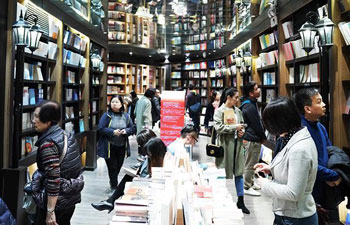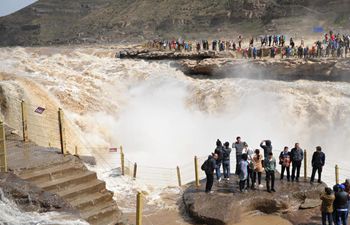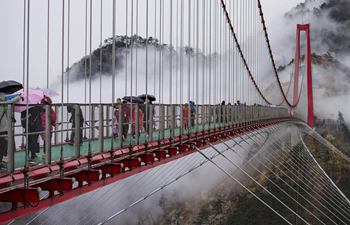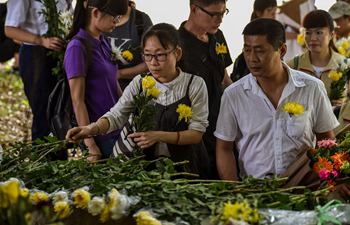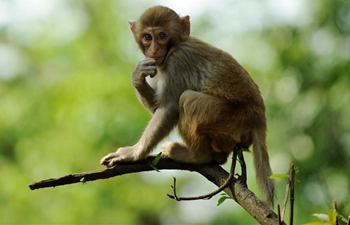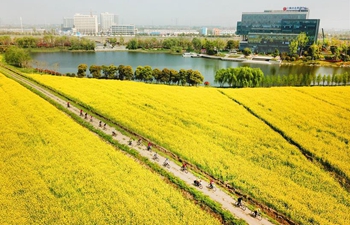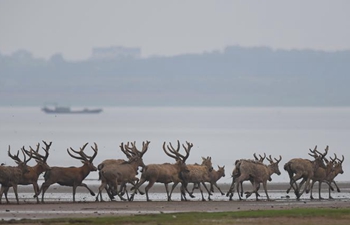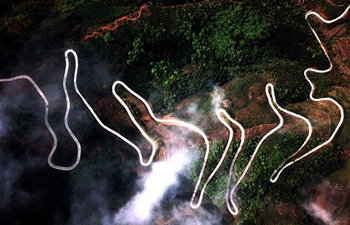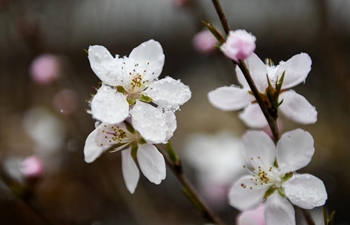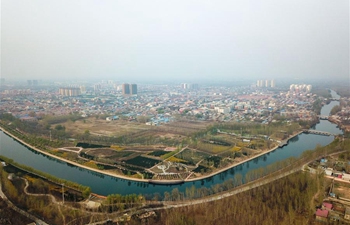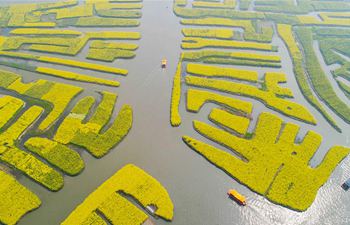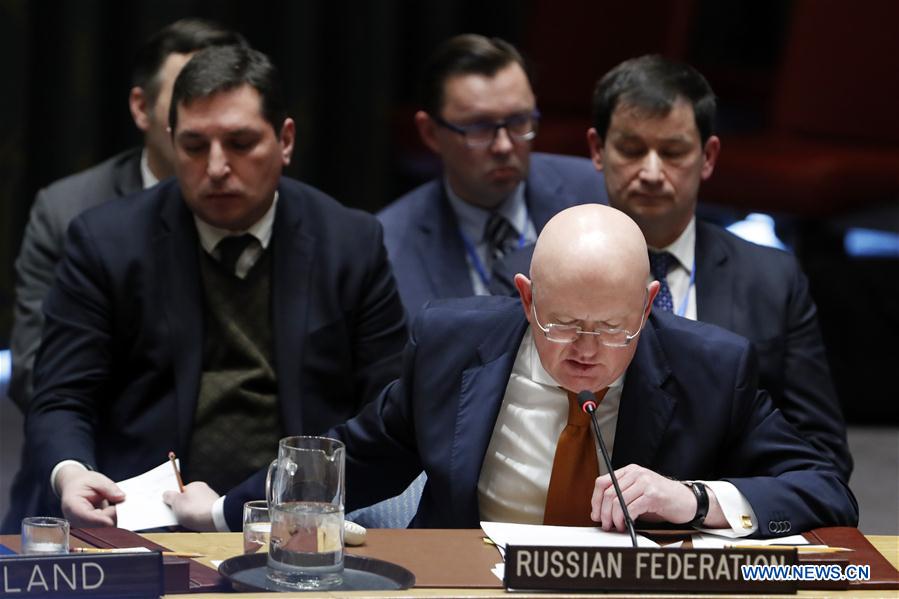
Russian Ambassador to the United Nations Vassily Nebenzia addresses a Security Council meeting on the poisoning of former Russian double agent Sergei Skripal and his daughter Yulia Skripal, at the UN headquarters in New York, April 5, 2018.(Xinhua/Li Muzi)
by Xinhua writer Wang Jiangang
UNITED NATIONS, April 6 (Xinhua) -- The nerve-agent attack against a former Russian spy and his daughter in Britain's southwestern city of Salisbury sparked heated discussions between Russian and British envoys Thursday at the United Nations (UN) Security Council.
HEATED VERBAL EXCHANGE
The Security Council met Thursday afternoon for the second time in less than a month to discuss the poisoning of former Russian double agent Sergei Skripal and his daughter Yulia Skripal, with Russian Ambassador to the United Nations Vassily Nebenzia saying that Britain was engaged in "a theater of the absurd" by seeking to put responsibility on his country.
Raising a series of questions, Nebenzia said that Russia was not responsible and that Moscow expected both answers and full cooperation from the British side, as well as consular access to the Skripals.
Furthermore, the origin of the substance used in Salisbury had not been confirmed, yet people were demanding that Russia acknowledged its guilt, he added.
A crime had been committed on British soil, and perhaps also a terrorist act on a Russian citizen, Nebenzia said, adding that a draft statement from his delegation for the Security Council's consideration would be a litmus test as to whether Britain and its allies were "true to their words."
In response, British Ambassador to the United Nations Karen Pierce reaffirmed her government's position that it was "highly likely" that Russia had carried out the attack.
She said that on March 21, the Organization for the Prohibition of Chemical Weapons (OPCW) had deployed a team to Salisbury and collected samples, which were sent to several designated laboratories for testing.
Britain would share those findings once a report was made available, Pierce said, accusing Russia of attempting to undermine the international institution responsible for the investigation.
BRITAIN GETS SUPPORT FROM U.S., FRANCE
Kelly Currie, U.S. deputy ambassador to the United Nations, voiced support for Britain's position, saying that the meeting was an attempt by Russia "to use the Council for political gains."
Either Russia had used a chemical weapon in the Salisbury attack or it had failed to declare its stocks of nerve agents, said Currie.
In the same vein, French delegate to the United Nations Francois Delattre said France would never allow impunity for those who used chemical weapons, adding that Russia must be part of the solution and immediately act responsibly.
CHINA CALLS FOR COOPERATION
Several speakers appealed for cooperation, including China's delegate, who said relevant issues should be addressed within the framework of the Chemical Weapons Convention.
Emphasizing that the truth must be determined as soon as possible, Wu Haitao, China's deputy permanent representative to the United Nations, urged the countries concerned to engage in consultations, "avoid politicization and actions that would aggravate the situation, and handle the issue through dialogue."
At a time when the international community faces a plethora of issues, countries must "avoid a cold war mentality and devote their efforts to building mutual respect and win-win cooperation," he added.
Bolivia's representative, rejecting the use of chemical agents as weapons, likewise reiterated the need for a depoliticized investigation, adding that cooperation between relevant parties through diplomatic channels was essential to resolve the matter.
Also speaking at the meeting were representatives of Ethiopia, Kazakhstan, Sweden, Poland, Kuwait, Equatorial Guinea, the Netherlands, Cote d'Ivoire and Peru.
The meeting came a day after the Executive Council of the OPCW had met in The Hague, failing to agree on a proposed joint Russia-Britain investigation into the incident.
Skripal and his daughter were found unconscious in Salisbury on March 4. Britain has claimed they were exposed to a military-grade nerve agent called Novichok and held Russia responsible. Moscow has denied any involvement and called British accusations "completely unacceptable."
Earlier Thursday, Yulia said in a statement released by British police that her health has improved. "I am sure you appreciate that the entire episode is somewhat disorientating, and I hope that you'll respect my privacy and that of my family during the period of my convalescence," she said.




